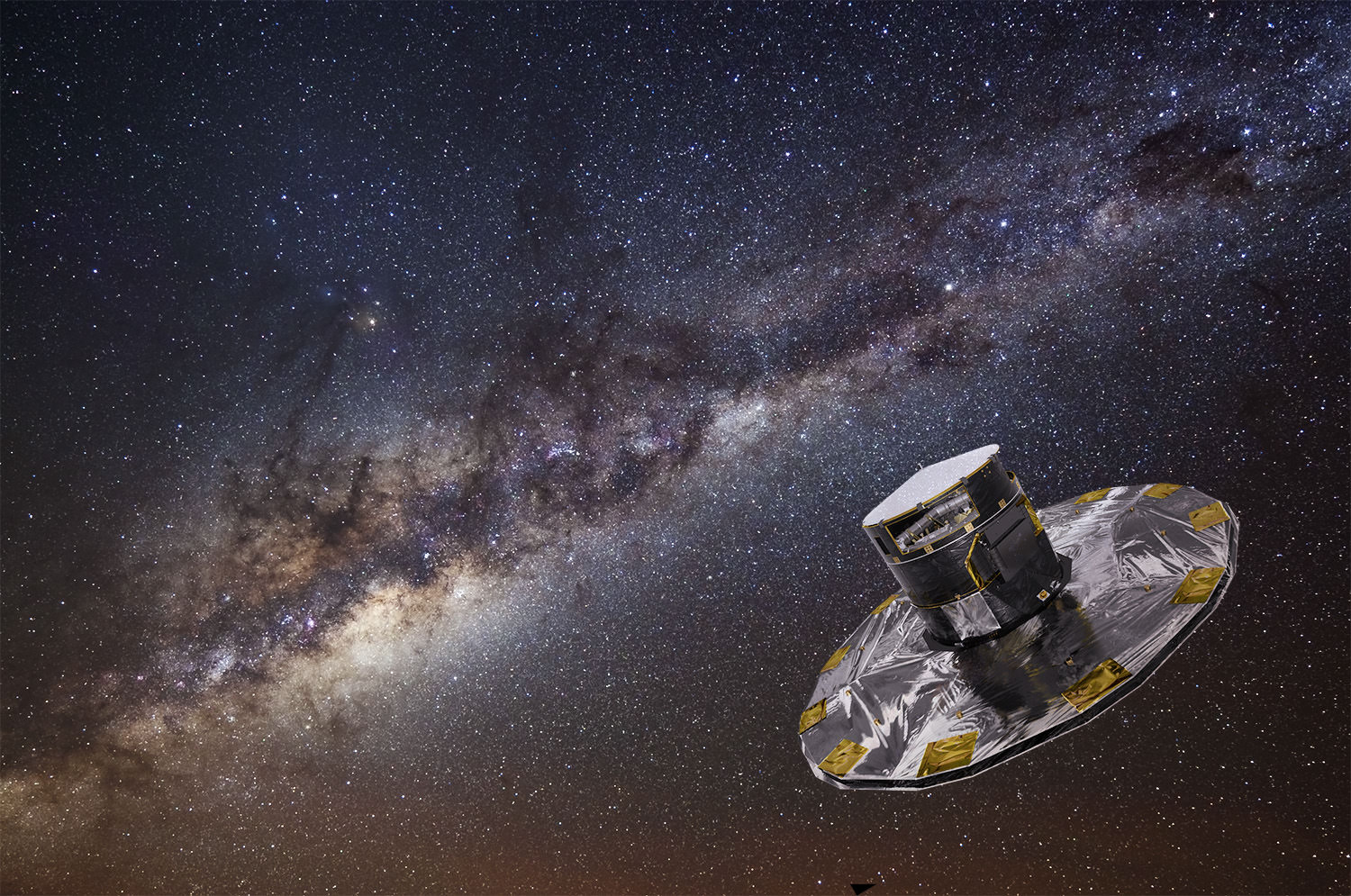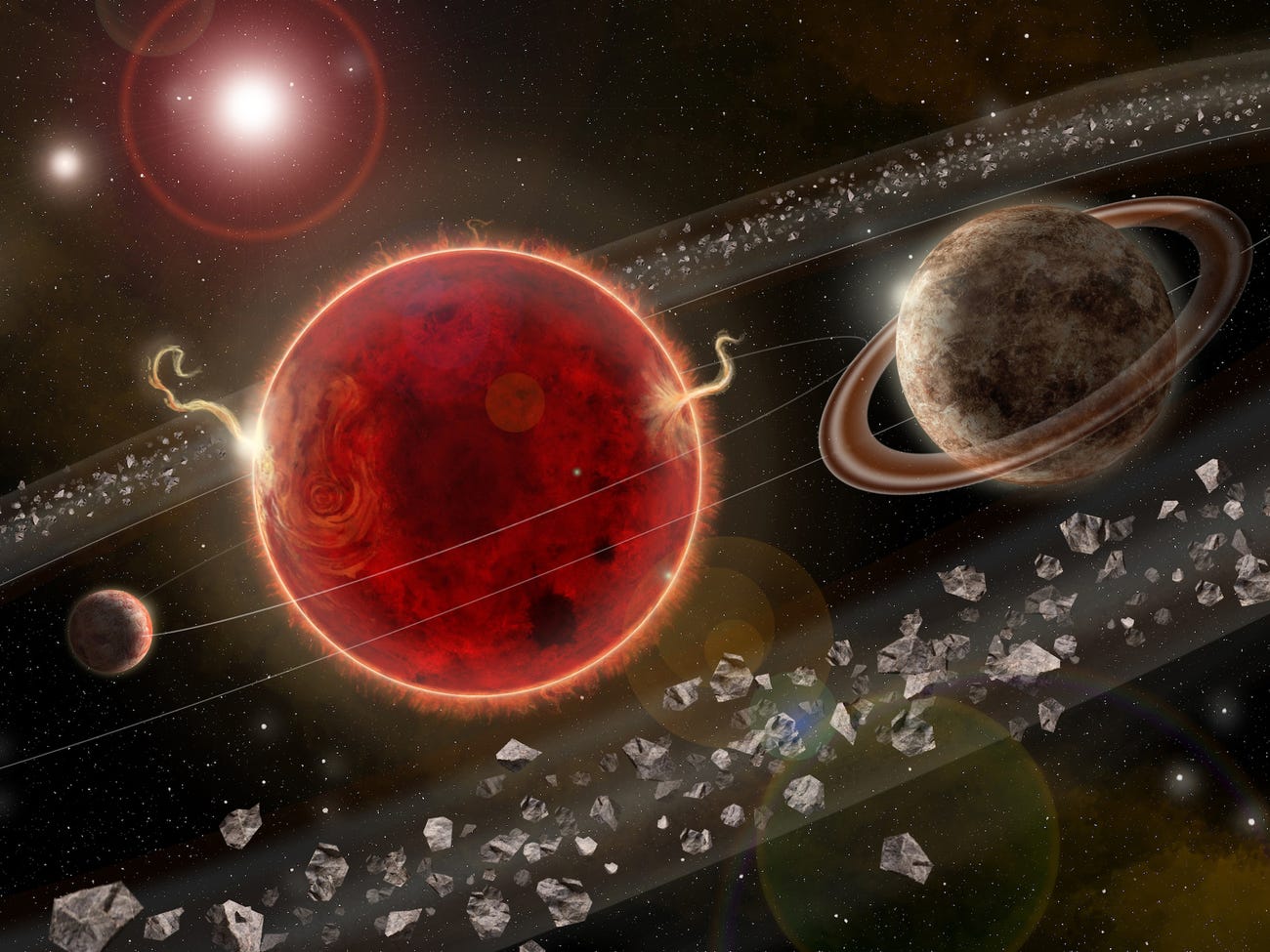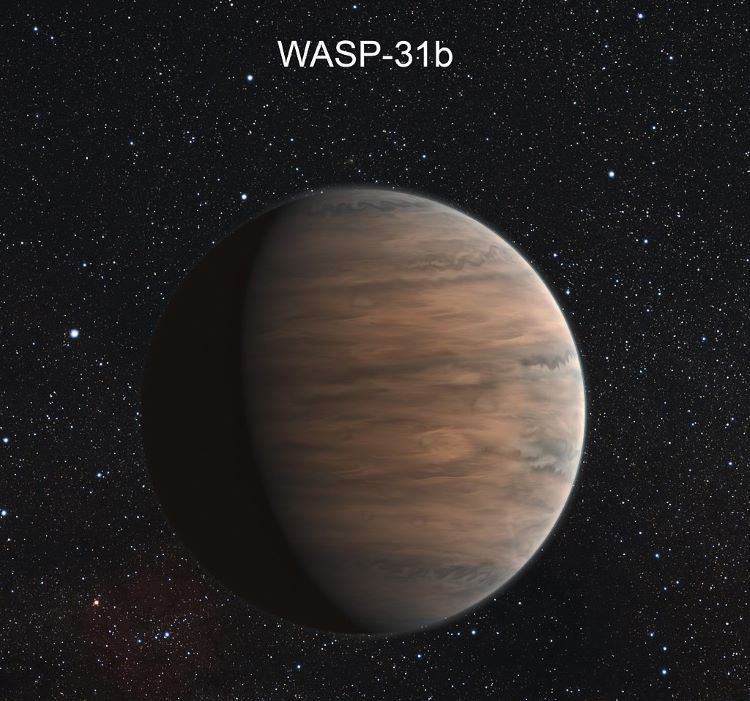A recent study published in The Astrophysical Journal Letters examines a rare alloy molecule known as chromium hydride (CrH) and its first-time confirmation on an exoplanet, in this case, WASP-31 b. Traditionally, CrH is only found in large quantities between 1,200 to 2,000 degrees Kelvin (926.85 to 1,726.85 degrees Celsius/1700 to 3,140 degrees Fahrenheit) and used to ascertain the temperature of cool stars and brown dwarfs. Therefore, astronomers like Dr. Laura Flagg in the Department of Astronomy and Carl Sagan Institute at Cornell University refer to CrH as a “thermometer for stars”.
Continue reading “Astronomers Confirm First Exoplanet “Thermometer Molecule” that is Typically Used to Study Brown Dwarfs”Gaia has Already Given Us 5 New Insights Into the Milky Way

The European Space Agency launched the Gaia mission in 2013. The mission’s overall goal was to discover the history of the Milky Way by mapping out the positions and velocities of one billion stars. The result is kind of like a movie that shows the past and the future of our galaxy.
The mission has released two separate, massive data sets for researchers to work through, with a third data release expected soon. All that data has spawned a stream of studies into our home galaxy.
Recently, the ESA drew attention to five new insights into the Milky Way galaxy. Allof these discoveries directly stemmed from the Gaia spacecraft.
Continue reading “Gaia has Already Given Us 5 New Insights Into the Milky Way”A 2nd Planet has been Confirmed for Proxima Centauri

Our closest stellar neighbour is Proxima Centauri, a small red dwarf star about 4.2 light years away from us. It’s the third member of the Alpha Centauri group, and even though it’s so close, it can’t be seen with the naked eye. In 2016 astronomers discovered a planet orbiting Proxima Centuari, named Proxima Centauri b. That planet was confirmed only a few days ago.
Now, astronomers have confirmed the existence of a second planet, Proxima Centauri c.
Continue reading “A 2nd Planet has been Confirmed for Proxima Centauri”Astronomy Cast Ep. 417: Error 417: Expectation Failed
In all fields of science, sometimes more is learned when you fail at what you’re trying to do than when you succeed. So what new science discoveries have failed expectations given us in astronomy?
Visit the Astronomy Cast Page to subscribe to the audio podcast!
We record Astronomy Cast as a live Google+ Hangout on Air every Monday at 12:00 pm Pacific / 3:00 pm Eastern. You can watch here on Universe Today or from the Astronomy Cast Google+ page.

